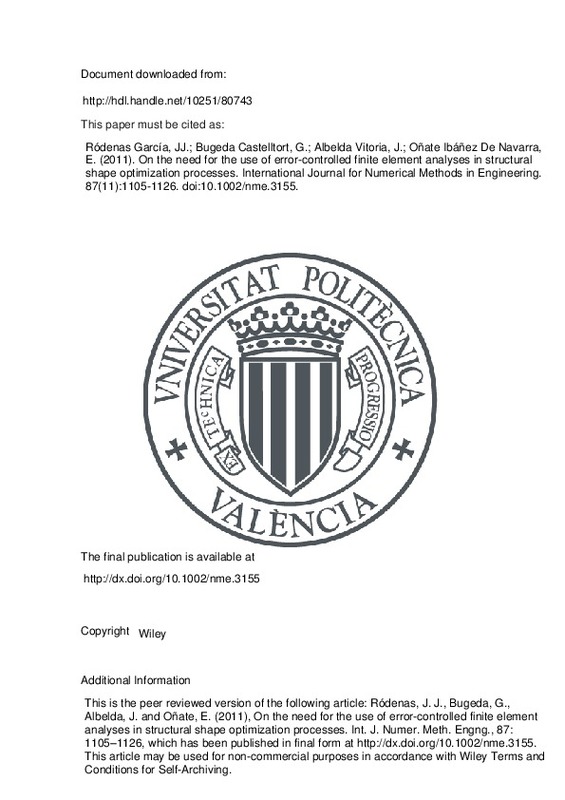JavaScript is disabled for your browser. Some features of this site may not work without it.
Buscar en RiuNet
Listar
Mi cuenta
Estadísticas
Ayuda RiuNet
Admin. UPV
On the need for the use of error-controlled finite element analyses in structural shape optimization processes
Mostrar el registro completo del ítem
Ródenas, J.; Bugeda Castelltort, G.; Albelda Vitoria, J.; Oñate Ibáñez De Navarra, E. (2011). On the need for the use of error-controlled finite element analyses in structural shape optimization processes. International Journal for Numerical Methods in Engineering. 87(11):1105-1126. https://doi.org/10.1002/nme.3155
Por favor, use este identificador para citar o enlazar este ítem: http://hdl.handle.net/10251/80743
Ficheros en el ítem
Metadatos del ítem
| Título: | On the need for the use of error-controlled finite element analyses in structural shape optimization processes | |
| Autor: | Bugeda Castelltort, Gabriel Oñate Ibáñez de Navarra, Eugenio | |
| Entidad UPV: |
|
|
| Fecha difusión: |
|
|
| Resumen: |
This work analyzes the influence of the discretization error associated with the finite element (FE) analyses of each design configuration proposed by the structural shape optimization algorithms over the behavior of the ...[+]
|
|
| Palabras clave: |
|
|
| Derechos de uso: | Reserva de todos los derechos | |
| Fuente: |
|
|
| DOI: |
|
|
| Editorial: |
|
|
| Versión del editor: | http://dx.doi.org/10.1002/nme.3155 | |
| Código del Proyecto: |
|
|
| Descripción: |
|
|
| Agradecimientos: |
|
|
| Tipo: |
|







![[Cerrado]](/themes/UPV/images/candado.png)


